When Alibaba CEO Eddie Wu took the stage at the annual Apsara conference in late September, few expected his keynote speech to be one of the hottest topics in Silicon Valley. Instead of a somewhat bland prepared speech like last year, Wu laid out a bold roadmap for Alibaba to become “ the world’s leading comprehensive AI service provider” and move towards “artificial superintelligence” (ASI).
The market reacted immediately. Alibaba shares in Hong Kong soared to a four-year high. But more importantly, just a day later, on the other side of the world, Jensen Huang, co-founder and CEO of chip giant Nvidia, mentioned Mr. Wu’s speech in a podcast.
These seemingly separate events are the perfect pieces of the puzzle, sketching out the whole picture of the trillion-dollar AI race between the US and China - a race that is entering a new, more complex and unpredictable phase, where cutting-edge chips are no longer the only trump card.
2 philosophies, one war
Wu's speech highlighted two completely opposite strategic schools that are shaping the AI war between the US and China, which is also seen as a confrontation between "absolute power" and "speed of application".

The AI war between the US and China is a confrontation between "absolute power" and "speed of application" (Photo: Fasterplease).
America builds impregnable fortresses
In the US, the race is defined by impossible numbers. Big tech corporations are pursuing a strategy that could be called “Leviathan” – building giant, all-powerful AI entities, technological “fortresses” protected by hedges of investment capital and proprietary computing power.
Mark Zuckerberg's Meta has pledged to spend up to $600 billion on AI infrastructure by 2028 - a figure that exceeds the GDP of many countries. Meanwhile, the OpenAI and Oracle alliance announced a $500 billion "Stargate" data center project, designed to become the computing brain for future generations of AI.
The philosophy behind these massive investments stems from the success of GPT-4 and the belief that the larger large language models (LLMs) or “foundation models,” the smarter they become and the more likely they are to produce revolutionary breakthroughs.
Silicon Valley’s startup culture and venture capital ecosystem promote a “go big or go home” mindset. They don’t just want to create a better tool, they want to create artificial general intelligence (AGI) and believe that the first to achieve it will take over.
China and the "guerrilla" strategy
Faced with America's "Leviathans," China chose a different path, a strategy reminiscent of "guerrilla warfare" with its flexibility, pragmatism, and focus on capturing "territory" for real-life applications.
Alibaba Chairman Joe Tsai summed up this philosophy: “In AI, there is no such thing as winning the race. The winner is not the one who creates the strongest model, but the one who can apply AI the fastest and most widely.”
Instead of burning hundreds of billions of dollars on giant proprietary models, Chinese companies are wisely leveraging the power of the open source community. They are developing models that are smaller, optimized for specific tasks, and most importantly, easily integrated into billions of mobile devices and personal computers. Their strategy is “cheaper, lighter, more flexible”.
The DeepSeek R1 is a living example of how it can match the performance of its American competitors at a fraction of the development cost. The success of the DeepSeek sends a powerful message: you don’t need a super cannon to win a war. Sometimes millions of rifles, equipped for each soldier, are more effective.
This approach is driven by two main factors: market realities and external pressure. China’s domestic market of more than a billion mobile internet users requires AI solutions that are lightweight, efficient and can run smoothly on smartphones. At the same time, US chip embargoes have forced Chinese companies to think more creatively, optimizing software to make the most of the power of existing hardware.
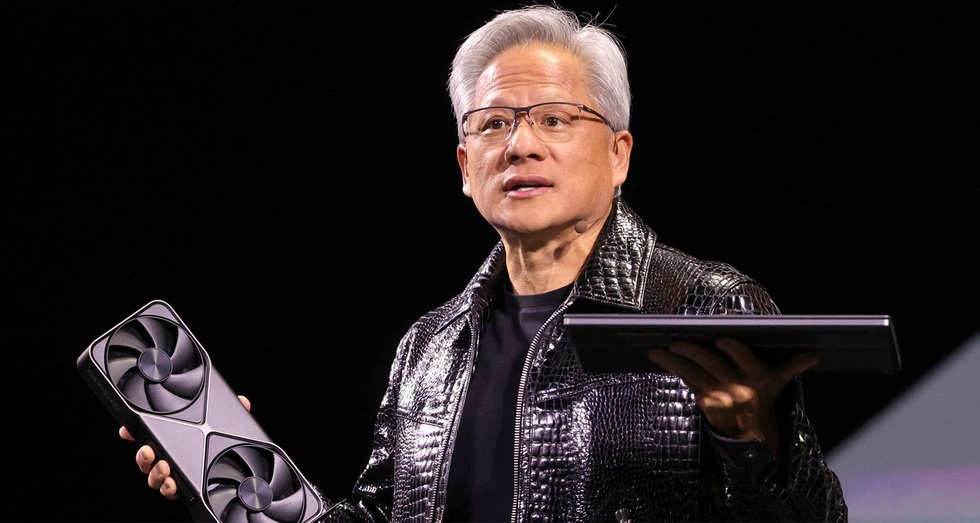
Jensen Huang, CEO of Nvidia - the company that is benefiting the most from the AI hardware fever - said that the US "is not too far ahead of China" (Photo: Reuters).
Warning from the "chip king": America can lose even though it is leading
No one knows this battle better than Jensen Huang, CEO of Nvidia—the company that is providing the ultimate “weapon” for the AI revolution—and he has been the one to issue the most blunt warnings about America’s strategic weaknesses.
Speaking on CNBC, Huang admitted that the US was “not that far ahead” and needed a more sophisticated strategy if it wanted to maintain its position. He pointed out the “Achilles’ heels” of the US’s strategy of focusing on hardware strength.
First, there’s energy. America’s mega-data centers require a huge amount of energy. According to the Energy Institute, China will produce 10,000 terawatt-hours of electricity by 2024, double the US’s output. This is a huge infrastructure advantage that money can’t solve overnight. Huang says bluntly: “The US leads in chips, China is on par with us in infrastructure and far ahead in energy.”
Second, the chip race is no longer a one-man show. While Nvidia still dominates with advanced processors like Blackwell, Huang warns against underestimating China’s capabilities. Huawei is rising strongly with its domestic Ascend chip line. Big players like Alibaba and Baidu have also started designing their own chips to train models. Competitive pressure is growing.
And most importantly, it's the speed of adoption that makes Huang "really worried." With strong government backing, which has set a target of 70% of the population using AI by 2027, China is deploying the new technology at an astonishing pace.
"I hope American companies and society will also quickly adopt AI, because ultimately, this industrial revolution will be decided at the application layer where AI really comes into life," he said.
When the billion-people market becomes a weapon
Jensen Huang's business logic is clear: "The Chinese market is too big, with billions of users. If the goal is to help the US win, this is not a market we can easily turn our backs on."
With 50% of the world’s AI researchers and 30% of the world’s tech market share, China is not just a competitor, but a giant ecosystem that can shape its own technology standards. The country’s stock market is recovering strongly thanks to confidence in AI, with Alibaba and Xiaomi seeing triple-digit growth.
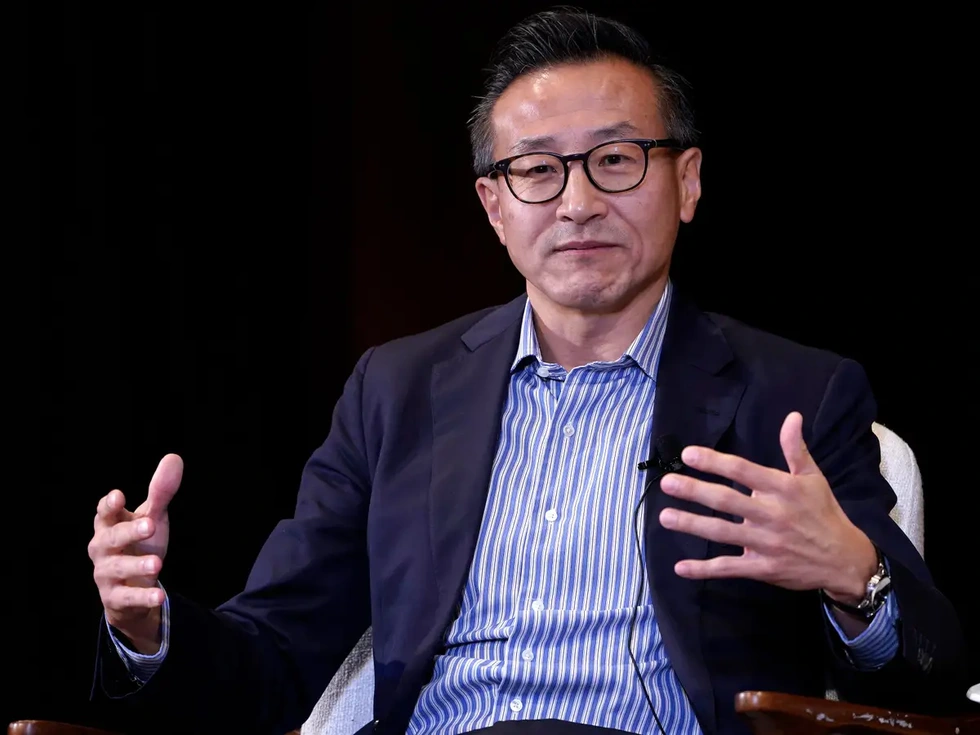
According to Alibaba Chairman Joe Tsai, the AI race is not about who creates the strongest model, but who deploys it faster (Photo: Getty).
Huang’s most profound warning is the risk of isolating American technology. Imposing export restrictions could be a double-edged sword. “We are isolating American technology within our own borders and leaving the rest of the world to others,” he said.
If US technology is not popularized globally, it will lose its advantage from the ecosystem, from developers and from user data. "If US technology has 80% of the global market share, we are doing well. But if it is only 20%, we have lost the AI race."
The AI war between the US and China has gone beyond a contest of chip processing power. It is now a marathon of deployment speed, integration into practice and the strength of an entire ecosystem.
The US may be leading the way at the starting line with the most powerful “machines”, but China is proving to be a marathon runner with its “speed run” and market coverage strategy. Who will finish first is still an open question, but the road to glory will certainly not be paved with silicon alone.
Source: https://dantri.com.vn/kinh-doanh/chuong-moi-cuoc-dua-ai-my-va-trung-quoc-khi-chip-khong-con-la-at-chu-bai-20251011134451966.htm








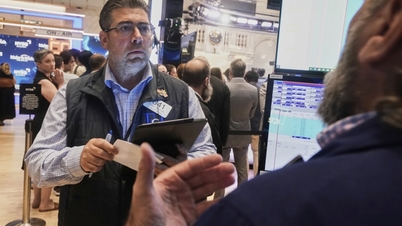

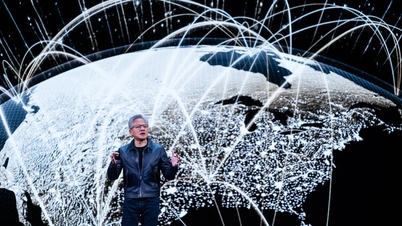
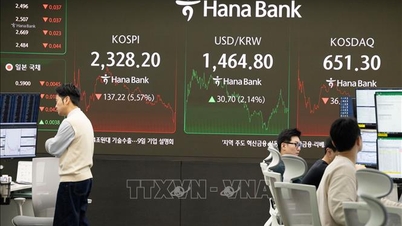








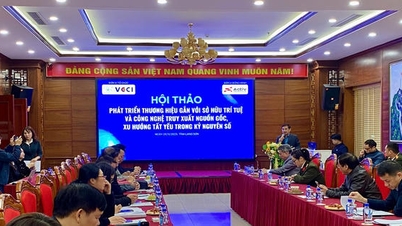

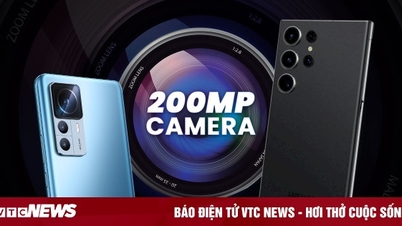

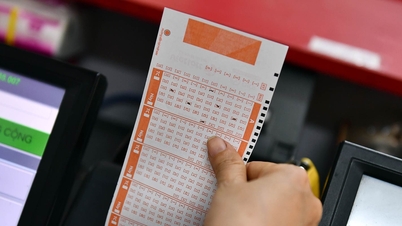








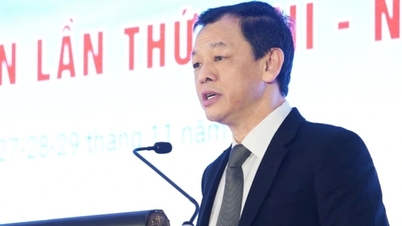


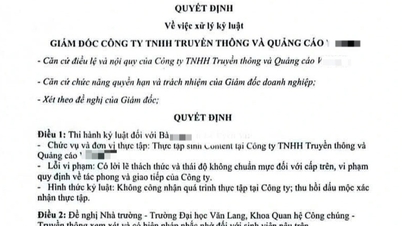





































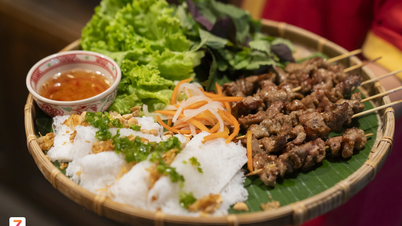













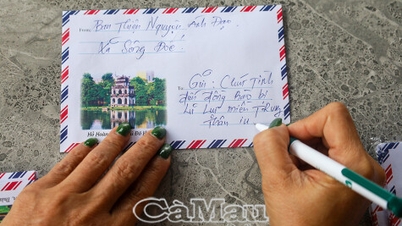







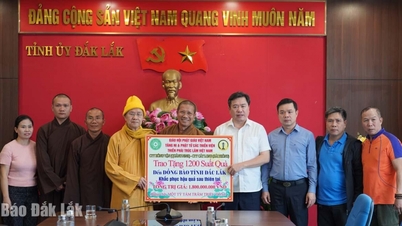












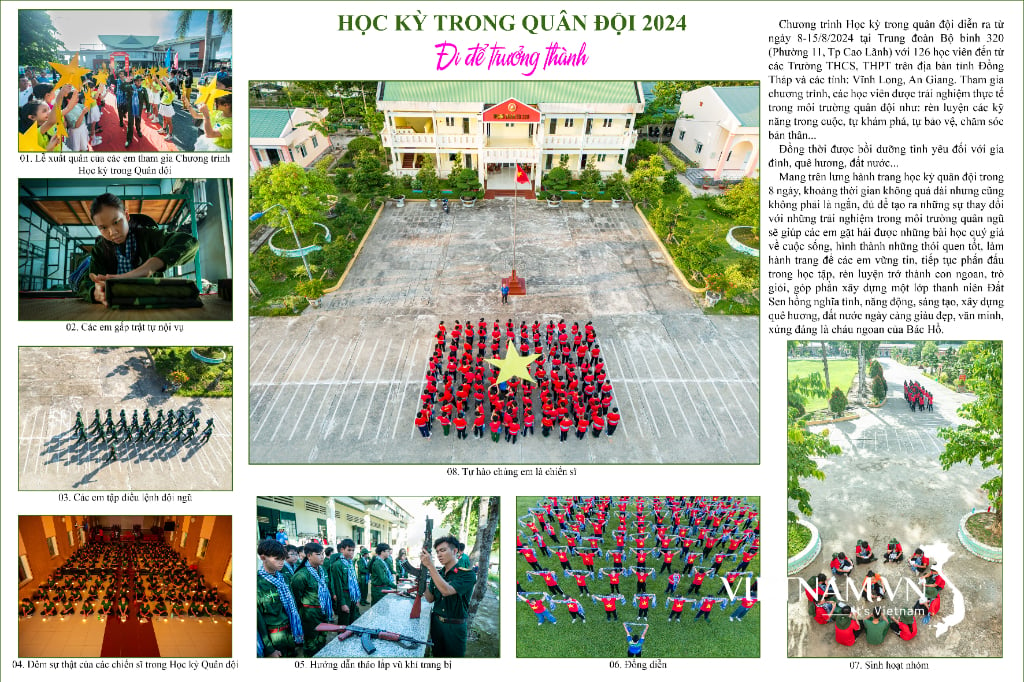
Comment (0)